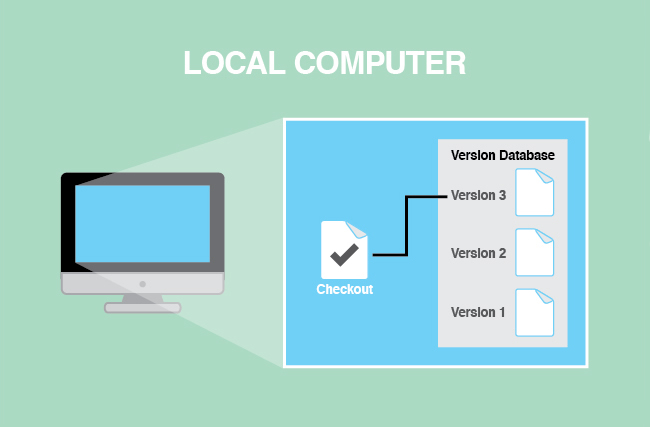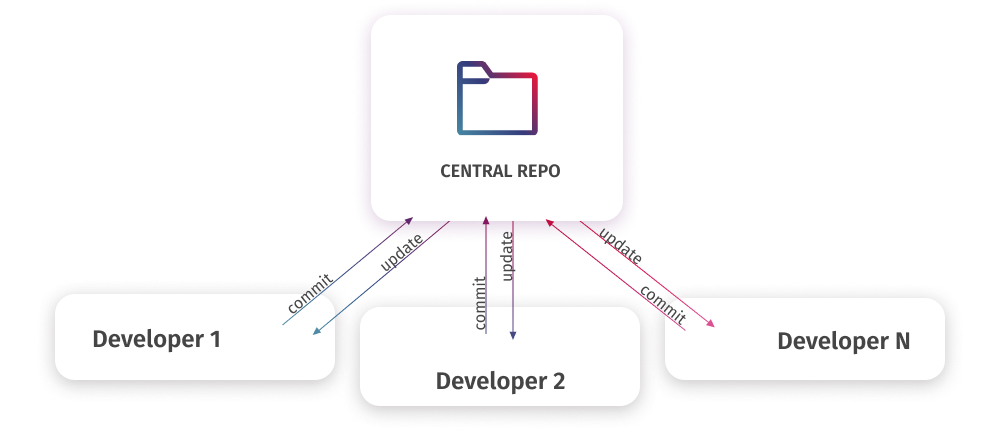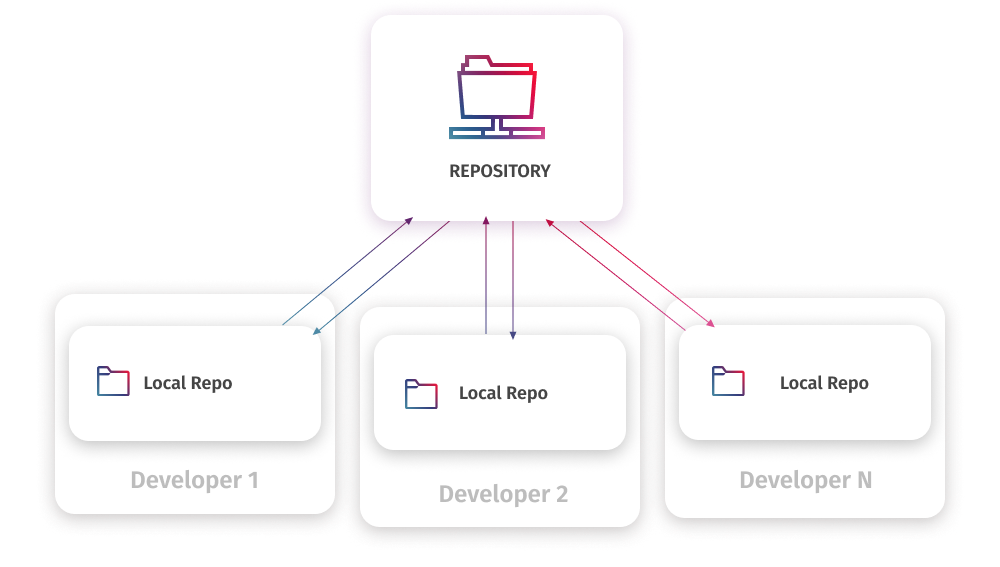Introduction to Version Control
This lesson introduces the concept of version control and explains why it is important for software development.
What is Version Control?
Version control is a system that records changes to a file or set of files over time so that you can recall specific versions later. It allows you to track changes, collaborate with others, and maintain a history of your work.
Types of Version Control Systems
There are three main types of version control systems:

- Local Version Control System: A local version control system stores changes to files in a database on the local machine. It allows you to track changes to files and revert to previous versions.

- Centralized Version Control System: A centralized version control system stores changes to files in a central server. It allows multiple users to collaborate on a project and maintain a history of changes.

- Distributed Version Control System: A distributed version control system stores changes to files in a distributed repository. It allows multiple users to work on a project independently and merge changes later.
Benefits of Version Control
Version control provides several benefits for developers and teams:
-
History Tracking: Version control systems maintain a history of changes to files, allowing you to track who made changes and when.
-
Collaboration: Version control systems enable multiple users to work on the same project and merge changes seamlessly.
-
Branching and Merging: Version control systems support branching and merging, allowing you to work on different features independently and merge changes later.
-
Backup and Recovery: Version control systems provide a backup of your work and allow you to recover previous versions of files.
Common Use Cases
Version control is commonly used for the following purposes:
-
Software Development: Version control is essential for software development to track changes, collaborate with others, and maintain a history of code changes.
-
Documentation: Version control is used to manage documentation, track changes to documents, and collaborate on writing projects.
-
Academic Research: Version control is used in academic research to track changes to research papers, collaborate with colleagues, and maintain a history of research projects.